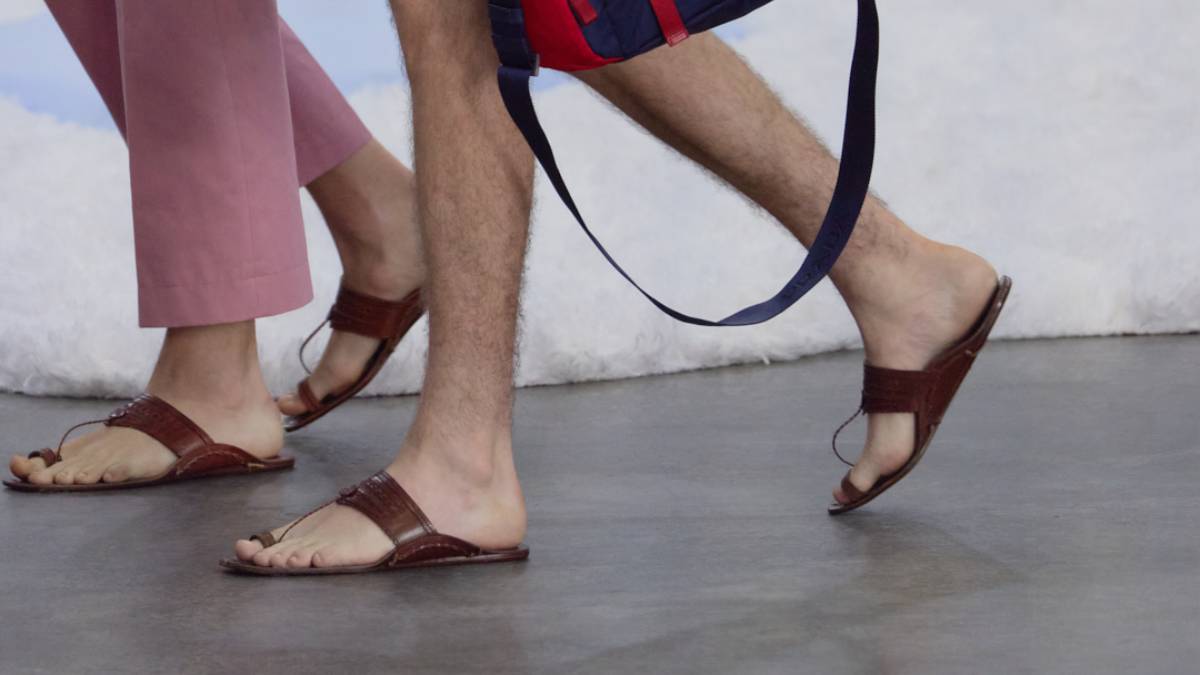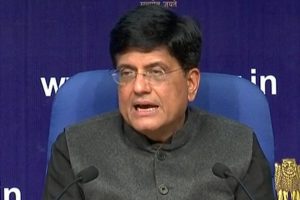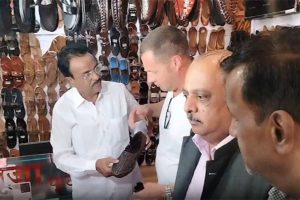A Public Interest Litigation (PIL) has been filed in the Bombay High Court against global fashion brand Prada, accusing it of unauthorised commercialisation and cultural misappropriation of the iconic Kolhapuri Chappals, a Geographical Indication (GI)-tagged traditional Indian footwear.
The PIL, filed on July 2, 2025, by Intellectual Property Rights advocate Ganesh S Hingemire, demands compensation for Maharashtrian artisans and legal action against Prada for showcasing a pair of ‘toe ring sandals’ in its Spring/Summer 2026 collection that allegedly replicate the distinctive style of Kolhapuri chappals—without acknowledgment or consent.
“The matter concerns misrepresentation, cultural misappropriation, and unauthorised commercialisation of Kolhapuri Chappals during an international fashion event in Milan on June 22, 2025,” the PIL states.
The petitioner claims Prada’s footwear, priced at over ₹1 lakh per pair, not only imitates the stylistic and cultural elements of the traditional Indian footwear but also overlooks its GI status, thereby violating the Geographical Indications of Goods (Registration and Protection) Act, 1999.
While Prada reportedly stated its designs were “inspired by Indian artisans” following online backlash, the PIL argues that this was a private acknowledgment, lacking a formal apology, compensation, or legal remedy to the affected artisan communities.
“The Kolhapuri Chappal is a cultural symbol of Maharashtra, and the brand’s superficial statement is seen as an attempt to deflect criticism,” the PIL adds.
The petition further urges the Indian government to strengthen policies for safeguarding GI-tagged products, to prevent exploitation by global fashion houses, and to protect the economic and cultural rights of traditional Indian craftsmen.
The case is expected to come up for hearing in the Bombay High Court soon.





